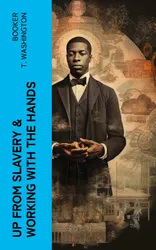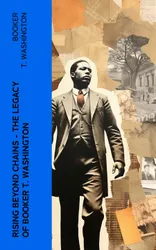Booker T. Washington's Up from Slavery is both an autobiography and a testament to resilience, chronicling his journey from bondage to national prominence as an educator and leader. Born into slavery in 1856, Washington describes the hardships of his early life, his determination to gain an education, and his eventual founding of the Tuskegee Institute. His narrative reflects not only personal triumph but also a broader vision of social uplift through education, industry, and self-reliance.
The book presents Washington's philosophy of gradual progress, emphasizing hard work, discipline, and practical learning as tools for African Americans to rise within a deeply segregated society. While some contemporaries criticized his emphasis on accommodation, Washington's achievements and his belief in the dignity of labor inspired countless individuals during and after his lifetime.
More than a personal memoir, Up from Slavery is a cornerstone of American history, offering insight into the challenges of Reconstruction and the dawn of the civil rights struggle. Washington's voice, marked by humility and determination, still resonates as a reminder of the power of perseverance and the enduring importance of education as a path to freedom.























